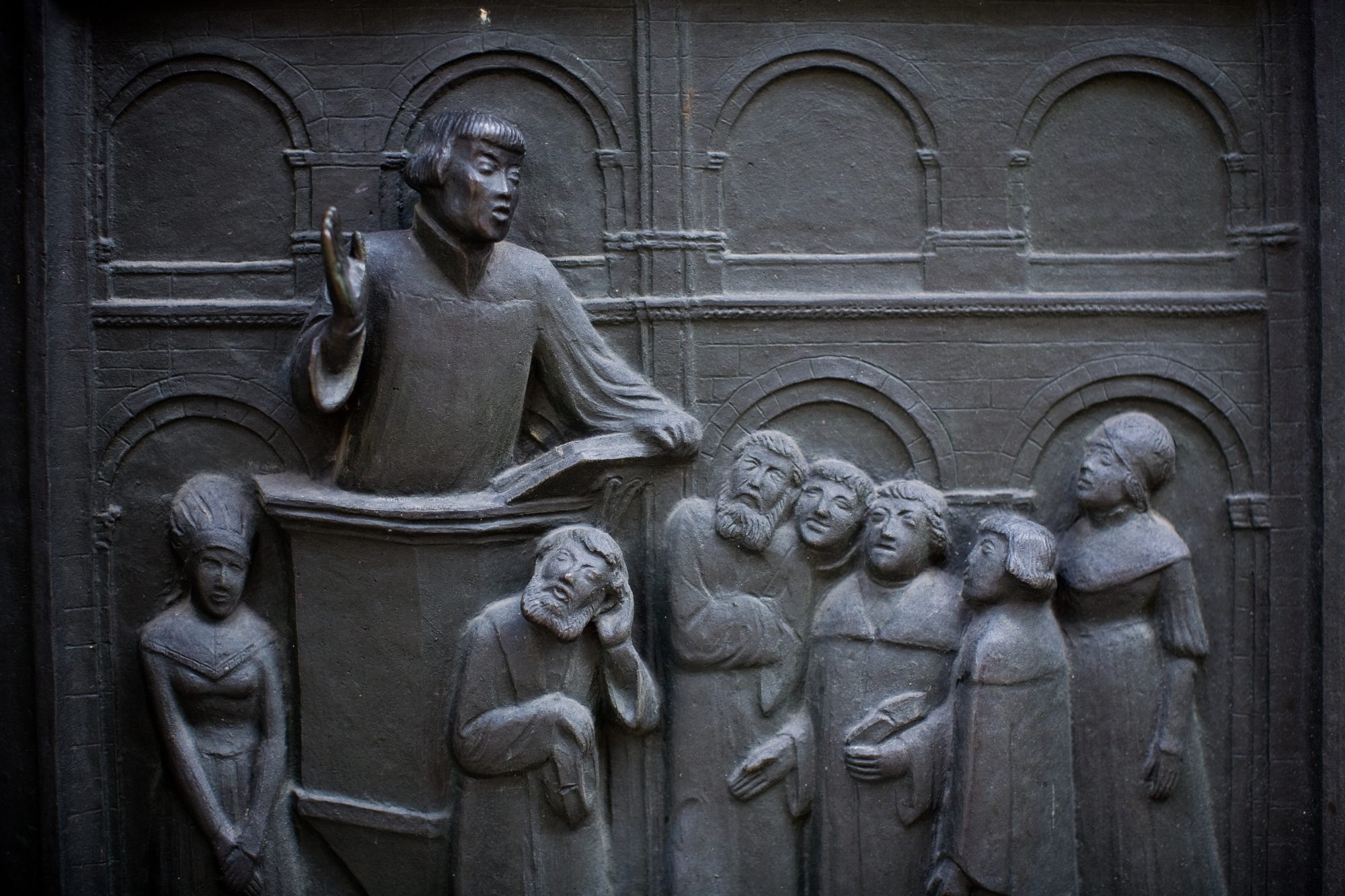
Why plant Baptist churches?
That is to say, shouldn’t we be more concerned with evangelism, raising up pastors, and ministering to the poor and marginalized on the mission field rather than with making sure our church plants are sufficiently Baptist?
Of course, one answer is simply that Southern Baptist Cooperative Program dollars make international church-planting efforts possible. As such, good stewardship of the resources given by Baptist churches naturally leads to Baptist church plants on the field.
I agree with the stewardship argument. And I believe that Baptist views of the church and the ordinances are thoroughly biblical. Yet, I think there’s another essential reason for planting Baptist churches: the connection to the Christian tradition.
The Baptist Stream of Christian Tradition
Every Christian stands in a larger stream of Christianity, stretching from the birth of the church until now. Those of us connected to Christ are also connected to each other by his Holy Spirit. “There is one body and one Spirit,” Paul said, and there is “one Lord, one faith, one baptism” (Eph. 4:4–5).
“Planting Baptist churches while being conscious of the Great Tradition both clarifies who we are and reminds us that we’re a part of something much larger than ourselves.”
When we plant local churches, we plant them as a particular community of the body of Christ. Thus, connecting a local church to a particular theological tradition—in our case, the Baptist tradition—connects a church not only to her own denomination but also to the body of Christ throughout space and time.
This kind of connection to the body of Christ through the Baptist tradition yields two major benefits for church planters.
1. The Benefit of Renewal
Connecting to the body of Christ through the Baptist tradition begins with understanding the Great Tradition. (By “tradition” I mean the core beliefs and practices taught by the Bible, expressed in the creeds, and held by all orthodox Christians throughout the ages.)
In other words, it is vital to learn from Christians in the past, including those in our denominational heritage. Specifically, we must learn how they thought about God and practiced worshiping him. Indeed, such knowledge can help us know God truly and worship him rightly in any context.
In the words of Timothy George, we must retrieve the Christian past for the sake of renewal in the present. Or, to put it in the terms of the Center for Baptist Renewal, “As we retrieve the past, and harvest it for its doctrinal and liturgical ‘best practices,’ as it were, then we will find new inspiration in our efforts to interpret and apply the Scriptures for our own day.”
Note that this retrieval is not only doctrinal. Our worship practices also reveal our place in the body of Christ. When we baptize, take the Lord’s Supper weekly, and preach the Word of God, we are practicing a liturgy that has existed for almost two thousand years.
Therefore, planting Baptist churches while being conscious of the Great Tradition both clarifies who we are and reminds us that we’re a part of something much larger than ourselves. It sharpens our sense of what it means to be Baptist and reinforces our connection to the body of Christ.
2. The Benefit of Community
The difficulties involved in planting a church are quite daunting, and these challenges only increase in foreign contexts. For example, an international church planter must also make new friends in a new culture while learning a new language. This is why many missionaries hit a wall of loneliness and isolation just months after arriving on the field. This problem is only exacerbated in hostile contexts requiring some level of secrecy.
When faced with such challenges, church planters can find community in their Baptist connection to the larger body of Christ. Specifically, we must never forget that we are not the first to face difficulties on mission. And we never we face them alone either.
The author of Hebrews tells us that we are “surrounded by such a great cloud of witnesses” (Heb. 12:1). We are, in other words, part of an unbroken chain of believers who have finished the race. Many persevered through situations similar to those that church planters often face: the prevalence of false religion, active opposition, evangelism made illegal, imprisonment, torture, banishment, even martyrdom.
Even closer to home, the early Baptist “cloud of witnesses” also faced struggles during times of great persecution. All those who kept the faith serve as a godly example and a source of encouragement when we face similar trials.
“Church planters can find community in their Baptist connection to the larger body of Christ.”
Let us, therefore, never be ashamed to plant Baptist churches. For in this way our sense of place in the body of Christ and our source of encouragement from believers past will both be enhanced by our conscious connection to every Christian through our distinctive faith tradition.
Matthew Y. Emerson is the Dickinson associate professor of religion and director of the Master of Arts in Intercultural Studies program at Oklahoma Baptist University. He is also the author of several books, and he serves as co-executive director of The Center for Baptist Renewal.

